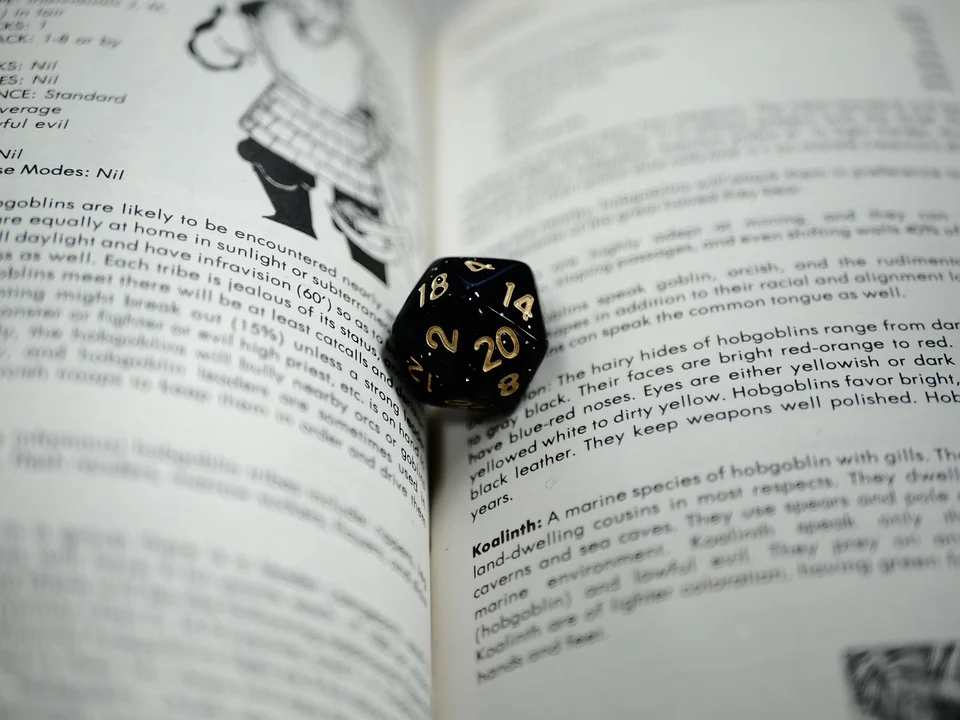
Every Character Sheet has to start somewhere- and sometimes the best thing to do is build that Character from From The Table Up– and today we’re going to talk about the languages of DnD 5e. An essential building block to all sorts of adventures.
Communication wouldn’t exactly be smooth without a form of language now, would it? Within D&D 5e there are 16 “known” languages, many with their own dialects. These languages are grouped into the Standard and the Exotic according to the Player’s Handbook, and there are even a few hidden gems along the way but those are for another time.
Table of Contents
Standard Languages of dnd
The eight (8) standard languages are as follows:
| Language Name | Typical Speakers | Script |
| Common | Humans | Common |
| Dwarvish | Dwarves | Dwarvish |
| Elvish | Elves | Elvish |
| Giant | Ogres, Giants | Dwarvish |
| Gnomish | Gnomes | Dwarvish |
| Goblin | Goblinoids | Dwarvish |
| Halfling | Halflings | Common |
| Orc | Orcs | Dwarvish |
Your race will determine what language(s) your character will speak from the beginning of the campaign, and backgrounds can also bring access to second or even third languages. Always, note these on your character sheet- wouldn’t want to miss a vital clue or step because of forgetting you know how to read Giant!
It’s also worth noting that all these languages are written in a “script” somewhat like how English, French, or Spanish is in letters. There isn’t much information to be found on this in the Player’s Handbook but to comment as a prior GM – choosing a script to stand in for any language is more a world building technique than anything else, flair for those who like the dramatics.
Exotic Languages of DnD
| Language Name | Typical Speakers | Script |
| Abyssal | Demons | Infernal |
| Celestial | Celestials | Celestial |
| Draconic | Dragons, Dragonborn | Draconic |
| Deep Speech | Aboleths, cloakers | None |
| Infernal | Devils | Infernal |
| Primordial | Elementals | Dwarvish |
| Sylvan | Fey Creatures | Elvish |
| Undercommon | Underworld Traders | Elvish |
There are families of dialects within these languages, the best example being Primordial. The Primordial language includes the Auran, Aquan, Ignan, and Terran dialects, one for each of the four elemental planes that can be found. Usually, canonically, creatures that speak different dialects of the same language can communicate with one another.
Usually, it is up to the GM of the campaign as far as whether or not a Player Character can know and/or understand an exotic language but most definitely not out of the realm of possibility for an interesting twist on a Bard with a backstory or a Paladin holding secrets.
Secret Lanuages
What would an adventure like DnD be without a few tricks up its sleeve? And, admittedly, this does mean a few.
Along with the “known” languages within the DnD sphere there are also secret languages to be found and used by PCs and NPCs throughout your travels.
The three secret languages in 5e are “Thieves Cant,” “Druidic,” and “Draconic Prophecy.”
These languages are rarely something ‘spoken,’ and more used to leave hidden messages from NPCs to PCs throughout the adventure.
The Player’s Handbook describes Druidic as a secret language of the Druids that requires those who don’t know/understand it to have a successful DC 15 Wisdom check to spot it.
In a Nutshell
To summarize in the simplest of terms- language is something that DnD 5e leans heavily into as a way to build the world around you as well as allow the characters to communicate effectively through their journey together.
Race will make a difference in what languages a Player knows automatically as well as their background and feats they may learn along the way.
Never forget to update your character sheet with the languages you know- not doing so could cause a problem down the road. Never fun when you mistranslate something important in a high stress situation.
And as always, check with your GM to see if there is an exotic language or even a ‘controversial’ language you’d like your character to know. The world is yours for the taking and usually all a Player has to do is ask.

